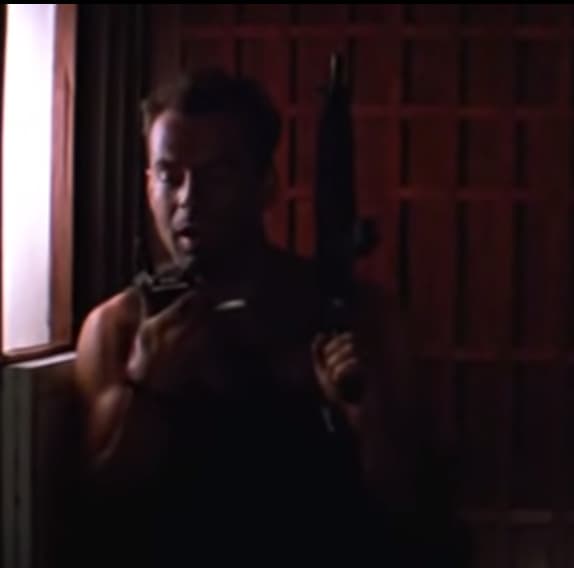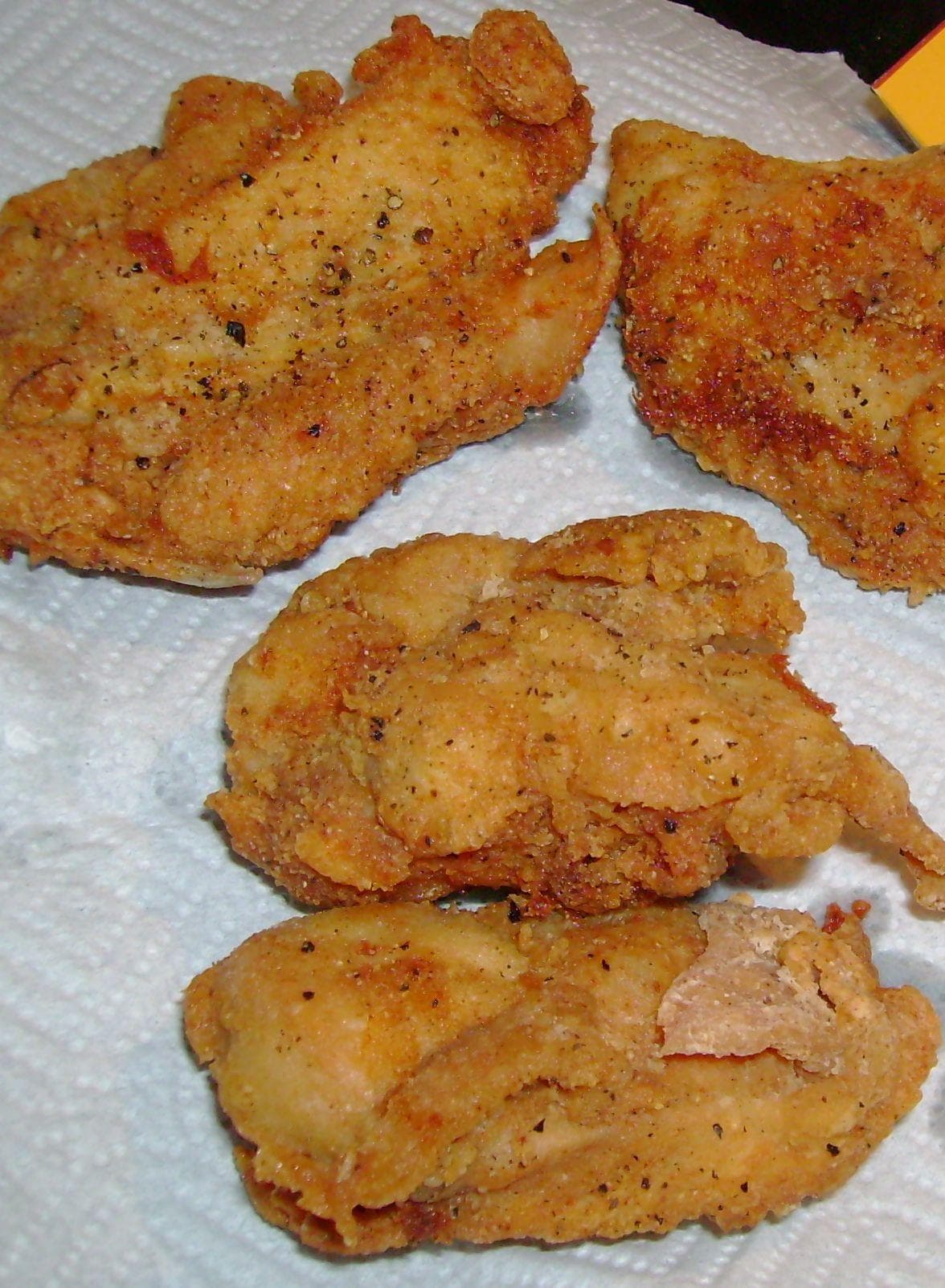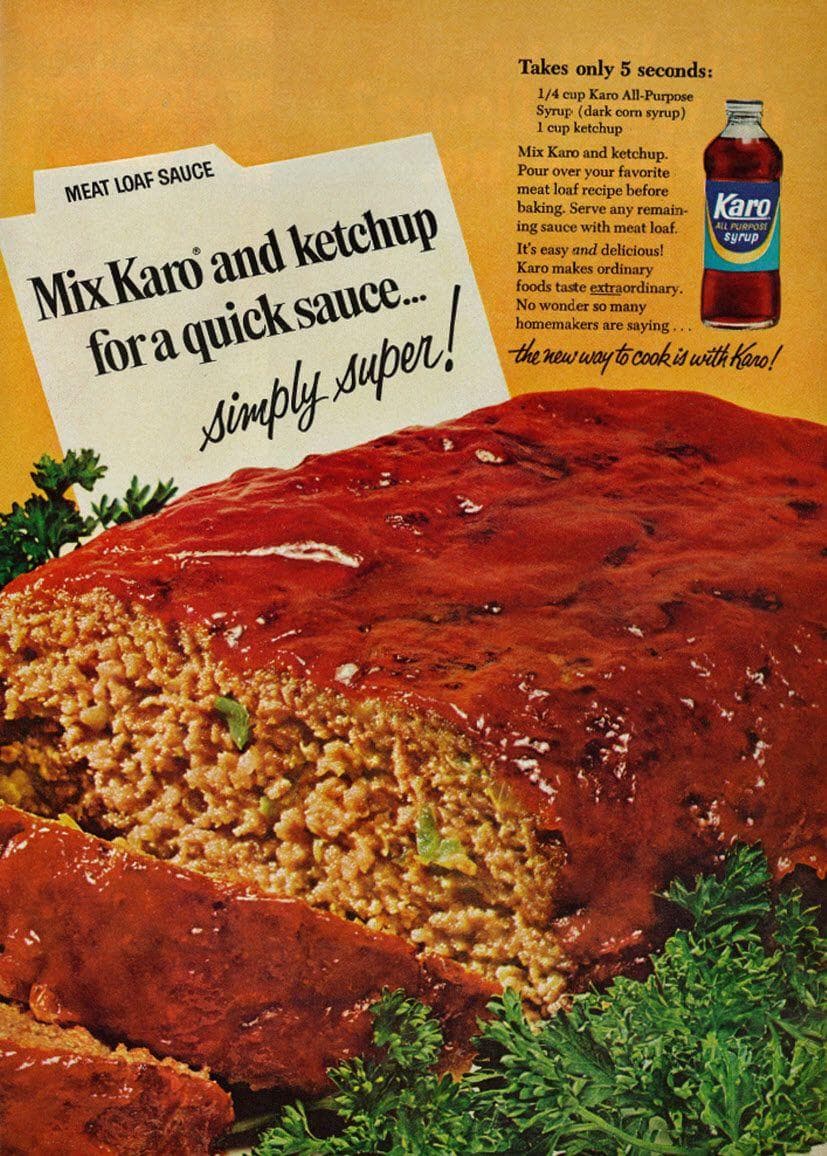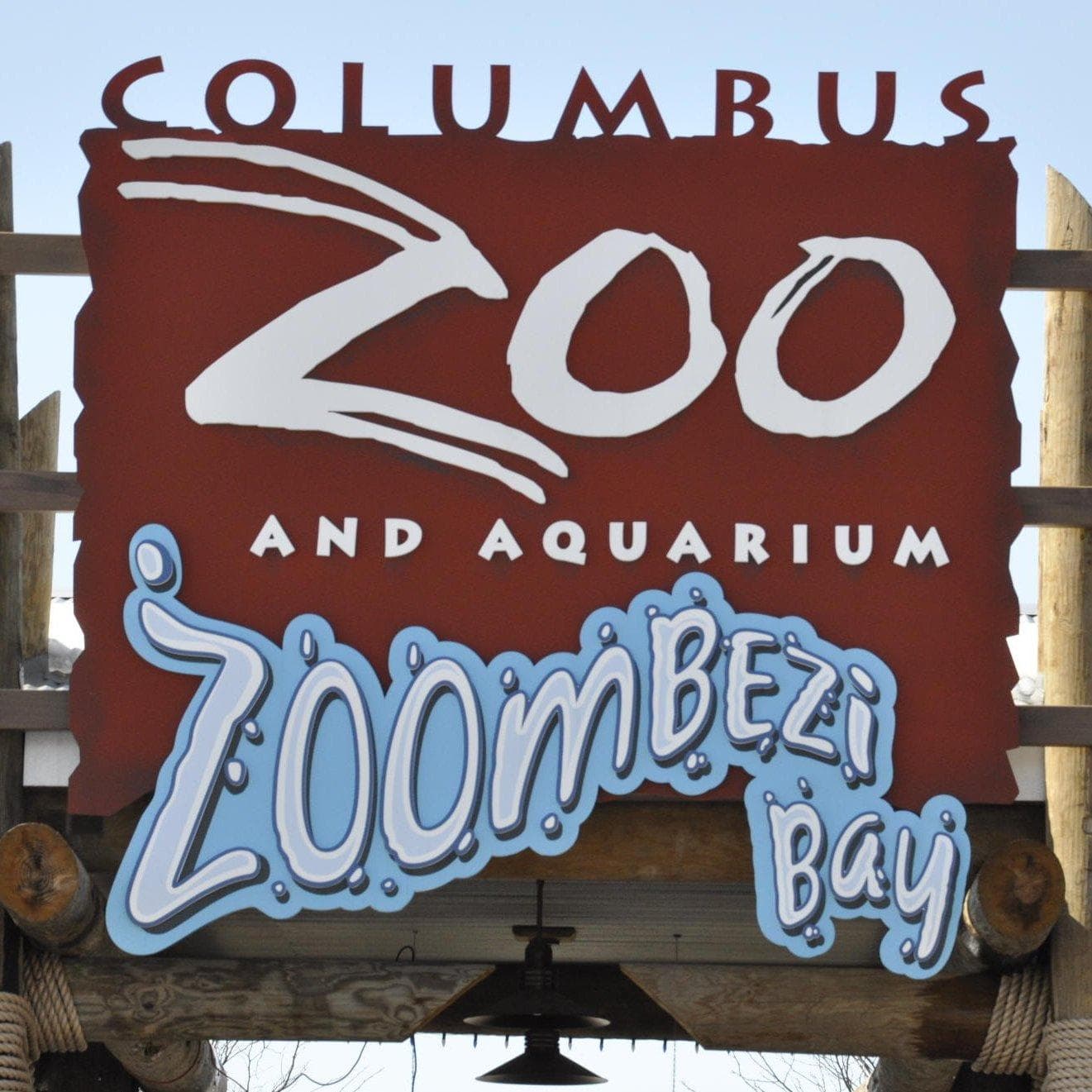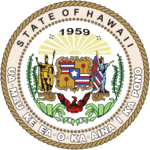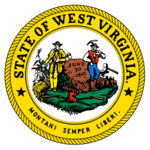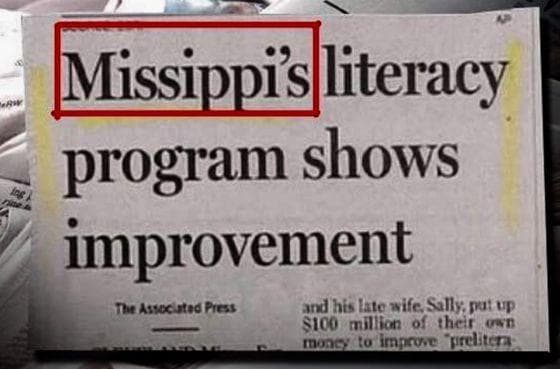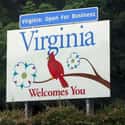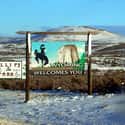-
(#1) Alabama
- 1819-12-14
To Alabamans, "a ways" is a distance that could be anything from 10 minutes to two hours in terms of travel time.
"Butter my butt and call me a biscuit” is a colorful way to express delight and/or surprise.
A shopping cart may be referred to as a "buggy."
Locals call Birmingham "the Ham."
Alabama is in the tornado belt, so if an Alabaman says they're "goin' to the shelter," that likely means they're headed to a tornado shelter.
It doesn't snow much in Alabama, so if people think a storm is coming, they'll go buy out all the bread and milk, which leads to the joke that they'll be surviving on "milk sandwiches."
College football is a huge deal in the South. The University of Alabama has been one of the top programs in the country for decades. "Roll Tide!" originated as a way to cheer on all of the university's athletic teams, although its use has expanded to any number of situations outside of sports. A variant is "Roll Damn Tide!" which may also be used to conclude a telephone conversation.
Alabama is one of those places where any carbonated beverage is a "Coke," so if you order one, the waiter might respond by asking, "What flavor?"
-
(#2) Alaska
- 1959-01-03
Although it sounds like a convenient way to carry your snacks around, in Alaska, a "banana belt" is actually the warmest region in an otherwise really cold area.
"Bunny boots" are oversized insulated boots that can keep your feet warm when freezing temperatures hit. Originally made for the Army, the boots come in two colors: white and black (the black ones are also known as "Mickey Mouse boots").
Someone new to Alaska who doesn't really know much about living there is called a "cheechako," while the opposite of a cheechako is a "sourdough." The term "cheechako" reportedly originated during the gold rush era of the late 19th and early 20th centuries.
To Alaskans, "outside" is any US state other than Alaska itself.
The first visible snowfall on the mountains is referred to as "termination dust," since it signals that summer is coming to an end.
-
(#3) Arizona
- 1912-02-14
It may be one of the most popular tourist destinations in the United States, but to Arizonans, the Grand Canyon is nothing more than the "big ditch."
To an Arizonan, "chizhii" means rough or dry skin that looks or feels similar to firewood.
In Arizona, a "haboob" is a major dust storm.
It can get really hot in Arizona. To stay comfortable, you might need a "swamp cooler or swamp box," which is a unique way of referring to an "evaporative cooler" - an air conditioner that uses evaporated water to both cool and add moisture to the air.
-
(#4) Arkansas
- 1836-06-15
While it could refer to rear ends, in Arkansas, "bottoms" also means bottomland, which is flat, fertile land near a river - prime deer hunting territory.
Arkansans use "bowed up," which is a term taken from how a snake maneuvers its head before striking, to refer to someone's impatience or bad humor.
In Arkansas, if your house has a "gallery," that means it has a porch.
It's not a compliment if an Arkansan calls someone a "roofer;" they're basically calling that person an idiot.
"Woooooo pig sooie" is how fans of the University of Arkansas Razorbacks cheer for their athletic teams.
-
(#5) California
- 1850-09-09
Californians may describe something that is really good as "bomb."
If someone was using the term "hella," which translates as "extremely" or "really," before the band No Doubt released their song "Hella Good" in 2001, there's a good chance that person is from California.
In Southern California, anyone who has ever been stuck in traffic on one of the freeways knows that a "Sig alert" is probably going to make their commute even longer. This is an unexpected event (such as an accident) that closes down at least one lane on the road.
A "dingbat" can refer not only to an unintelligent person, but also to the ubiquitous style of boxy midcentury apartment buildings that dominate the Los Angeles landscape.
If an Angeleno wishes to say that they work in the movie business, they simply have to say they're "in the industry."
-
(#6) Colorado
- 1876-08-01
Coloradans might use the derogatory term "gaper" to describe people who are beginner skiers, often from out of state, who get in the way on the slopes. A related term is "gaper gap," which is the space between a novice skier's helmet and goggles.
If someone is headed to the mountains for some skiing, he will be hoping for some "pow-pow," which is fresh snow or powder.
Coloradans are known for being pretty polite. If someone cuts in front of them in line at a store, for example, the response would probably be, "You're fine."
-
(#7) Connecticut
- 1788-01-09
Pronounced "ah-BEETZ," an "apizza" is a Neapolitan-style pizza that is often topped with clams or shrimp.
According to Redditors in the Hartford area, a "boag" is what people might call a cigarette.
What people in other states might call a garage or yard sale is referred to as a "tag sale" in Connecticut.
-
(#8) Delaware
- 1787-12-07
If a Delawarean describes someone as "baggin' up," that means they are laughing really hard. This term reportedly derives from the London drug term "bagging up," which itself comes from the idea that someone "cracks up" when he laughs.
In Delaware, the entire coastal area of the state is referred to as "the beach."
In the southern half of Delaware, you might hear cauliflower pronounced as "colley flare."
When there is a heavy downpour in Delaware, the natives call that weather a "toad choker" or "frog strangler."
-
(#9) Florida
- 1845-03-03
To a Floridian, something that is "bobo" is below average or really basic.
If a Floridian says "dale" (pronounced DA-lay), they probably aren't calling you by your name (unless that actually is your name); instead, they're likely saying "bye," although it can also mean "come on" or "hurry up." Reportedly, the rapper Pitbull uses this term a lot.
In Florida, "no-see-ums" are those annoying little bugs that somehow seem to be invisible. Officially, a "no-see-um" is a biting midge known as Ceratopogonidae.
Shorthand for the Cuban phrase “oye que bola,” in Florida, the slang word "oye" translates to "hey" (hello).
"Snowbirds" are people who come to Florida during the winter to escape cold weather.
If someone is "sleepin'," that means they are missing out on something.
-
(#10) Georgia
- 1788-01-02
Instead of saying, "It's time to go," someone from Georgia may say, "Get to gettin'."
In Georgia, "no cap" is a substitute for "no lie," or is used as emphasis to support the idea that someone is telling the truth.
In Georgia, the phrase, "That dog won't hunt," doesn't mean that a dog is too lazy or uninterested to hunt. Instead, it means that the person speaking is really suspicious of whatever he's just been told.
-
(#11) Hawaii
- 1959-08-21
"Da kine" is a Hawaiian Pidgin phrase; Hawaiian Pidgin is a creole language based partially in English and is often heard at the beach. "Da kine" has all kinds of uses, and can be an adjective, adverb, verb, or noun. It's often used as a placeholder instead of the actual word, similar to the way the terms "thingy" or "whatchamacallit" are used.
Food is called "grinds," and delicious food is "ono grinds."
If someone is looking for the restroom, they may ask where the "lua" is.
People of Caucasian extraction or appearance are called "haoles."
The continental 48 states are referred to as "the mainland."
If a Hawaiian asks if someone has any plans for "pau hana," they want to know if that person has plans after work. "Pau" by itself means "finished" or "done," as in, "What time you pau?"
To a Hawaiian, if something is a waste of time, it is "poho."
-
(#12) Idaho
- 1890-07-03
In Idaho, they have a condiment that is a mixture of ketchup and mayonnaise that is referred to as "fry sauce."
If someone is an Idahoan, they don't have a glove compartment in their car, they have a "jockey box."
Instead of a ball being dropped on New Year's Eve, in Idaho, they drop a (fake) giant potato. The "potato drop" originated in Boise in 2012, and the "GlowTato" has LED lights to make it sparkle.
"I'll see you at the rendezvous!" In the days before Idaho became a state, when the French mountain men came to the area to do some fur trading, they held a rendezvous that was as much of a social event as it was a way to sell their furs. It is common for modern-day Idahoans to re-create these events.
In Idaho, those cute, furry, burrowing animals more commonly known as prairie dogs are called "whistle pigs."
-
(#13) Illinois
- 1818-08-26
In Illinois, sneakers are referred to as "gym shoes," regardless of whether they are actually worn in the gym.
"LSD," meanwhile, doesn't refer to a hallucinogen, but is an abbreviation for Lake Shore Drive, the road in Chicago that runs by Lake Michigan.
If someone says that something costs a "sawbuck," that means it costs $10.
In Illinois, a meal where every diner brings a dish is called a "scramble dinner" rather than the more commonly used term, potluck dinner.
-
(#14) Indiana
- 1816-12-11
Even though it is the University of Indiana's school nickname, you might want to be careful about calling someone a "Hoosier," because, to some people, that is the equivalent of calling them a redneck. The word "Hoosier" comes from the poem "The Hoosier's Nest," written in 1833 by Indiana native John Finley.
In Indiana, when something small happens that is surprising or silly, you might hear someone exclaim "ope!" a term that would land somewhere between the more common "oops" and "uh-oh."
More commonly known as a potluck dinner, in Indiana, a meal where all the diners bring a dish is referred to as a "pitch-in dinner."
-
(#15) Iowa
- 1846-12-28
If you are "going gravel" in Iowa, you are avoiding the crowded streets or highways and taking the back roads (which may or may not be paved) instead.
A phrase originally used by farmers, if someone's "got the holler tail," then they are in a really bad mood.
In Iowa, a "parking ramp" is the actual garage where you would park your car.
Instead of getting a wedgie, in Iowa, you'd get a "snuggie."
-
(#16) Kansas
- 1861-01-29
If someone is a fan of the athletic teams of the University of Kansas, they'll likely chant or say, "Rock Chalk (Jayhawk, KU)," especially when it's clear the team is going to win the game. The school's nickname is the Jayhawks.
While "shucky darn" might sound like a term of disappointment, to a Kansan it actually means "wow!"
If a Kansan says, "That's nice," they may actually be saying they don't give a damn.
To a Kansan, a chicken isn't a chicken - it's a "yardbird."
-
(#17) Kentucky
- 1792-06-01
In Kentucky, the phrase, "Be careful," isn't always a warning; it also can mean good-bye.
If a Kentuckian asks, "Do what?" then they didn't hear what the other person said, and they want them to repeat it.
In Kentucky, if someone says, “I think your wig’s a little loose,” they are saying they think you're not all there.
In Kentucky, "tump" is a combination of the words "tip" and "dump," as in, "Be careful, don't tump the soup onto your pants."
-
(#18) Louisiana
- 1812-04-30
In New Orleans, a sandwich either comes dressed or undressed. If it's "dressed," that means it comes with additional things like lettuce and/or tomatoes.
If someone wants to have a good time in New Orleans, he should try to get invited to a "fais do do." A Cajun phrase that's pronounced "fay dough dough" and translates as "to make sleep," it is a dance party. Originally, these were held in people's homes and went so late into the night that the children would go to bed without being told.
Instead of coming by to visit or dropping in to see someone, Louisianans say they will be "going by" your house.
People in Louisiana don't have a good time, they "pass a good time."
If someone in Louisiana asks, "Where y'at?" they want to know how you are or how it's going, not where you are. A good response is to say, "Awrite."
-
(#19) Maine
- 1820-03-15
When a native of Maine agrees with something or means "yes," they just say "ayuh" instead. This word derives from the Old English "yie," which later became "aye;" it was commonly used by sailors and fishermen.
To a Mainer, "bazz on" means that someone is really drunk.
In Maine, a "bug" isn't an insect - it's a lobster.
In Maine, if someone is "numb," that means they are dumb or stupid.
If someone hurts their "prayer handle," that means they've injured their knee.
-
(#20) Maryland
- 1788-04-25
If someone is a Marylander, especially a teenager, "bet" is slang for signaling agreement or the word "yes."
Similar to "a ways" in Alabama, in Maryland, a "bop" is a measurement of distance. In this case, it's a distance further than someone would actually want to travel.
You know those crabs that Maryland is famous for? Well, to Marylanders, a male crab is known as a "Jimmy," while a female one is called a "Sally" or "Sook."
If a Marylander asks, "What's the move for tonight?" they want to know what the plans are.
-
(#21) Massachusetts
- 1788-02-06
Although it sounds like it might refer to someone who always needs to go to the bathroom, "pisser" is actually Massachusetts slang for awesome.
In Western Massachusetts, a submarine sandwich or hoagie is called a "grinder."
Known to frustrate drivers on a regular basis, a "rotary" in Massachusetts is what would be known as a traffic circle or roundabout in some other states.
In Massachusetts, "wicked" means "really," "very," or "extremely." For example, something that is really good might be described as "wicked good." The word seems to have transformed from having a negative to a positive meaning sometime in the 1960s.
-
(#22) Michigan
- 1837-01-26
In the midst of a Michigan winter, you'd probably like to have some "choppers." These are deerskin mittens with a wool mitten insert. Your hands will thank you!
In Detroit, if someone has a lot of "chicken," that means they have a lot of money.
If you hear a Michigander talk about "superman," they may not be talking about that superhero wearing tights and a cape. In Michigan, "superman" is also a flavor of ice cream.
If someone is a native of the Upper Peninsula in Michigan, then they are a "Yooper." Meanwhile, Yoopers call anyone who lives in the Lower Peninsula a "troll" because they live "under" the Mackinac Bridge.
-
(#23) Minnesota
- 1817-12-10
If a Minnesotan asks someone to lend them something, they will say "borrow me," as in, "Can you borrow me $10?"
Minnesotans often end their sentences with the phrase, "Dontcha know?" to make sure that the listener actually understands what they are saying.
If a Minnesotan thinks something is adorable, they will say it is "fer cute."
If a Minnesotan thinks that something should be judged or critiqued but doesn’t want to explain their reasoning because they worry it would be offensive, they might say "interesting" or "that's interesting" in a passive-aggressive manner.
In Minnesota, if something is gross, it is "ish."
-
(#24) Mississippi
- 1817-12-10
In Mississippi, if someone "ain't got the sense God gave a piss ant," they're acting pretty stupidly.
If something is "finer than frog's hair," that must be really fine - because has anyone ever seen hair on a frog?
If someone is cravin' "some nabs," that means they want some peanut butter crackers. Although "nabs" is now a generic name for any brand of these crackers, the origin of the slang is from when Nabisco was the leading brand for this snack.
If your food is "rurnt," that means it is inedible or ruined.
-
(#25) Missouri
- 1821-08-10
To a Missourian, if someone is "jeffin," that person is being falsely friendly or helpful to someone they don't know or don't like.
Instead of being angry or ticked off, a Missourian is "put out."
When someone in Missouri goes food shopping, they put their items in a "sack" rather than in a grocery bag.
-
(#26) Montana
- 1889-11-08
If a Montanan says something costs "a buck ninety-eight," that means it is expensive.
In Montana, a "chicken foot" is a road that has forks that go off in three different directions.
To a Montanan, "ditch" is not a hole in the ground (that's a "borrow pit"), but means adding water to an alcoholic drink; for example, whiskey and water would be "whiskey ditch."
If a Montanan tells you to "cowboy up," they are saying to deal with your situation or problem in a mature fashion. In other words, "Man up."
"Hooky bobbing" sounds fun, if not altogether safe; that's when a person holds onto the bumper of a vehicle and slides on ice, snow, or any other slippery surface.
-
(#27) Nebraska
- 1867-03-01
In Nebraska, "detasseling" is the act of tearing off the wavy tops of corn stalks. In the rural part of the state, this is a common summer job for teenagers.
To Nebraskans, a "farmer wave" is the act of raising one's index and middle fingers from the steering wheel to give a friendly greeting to other drivers.
Nebraskans love their "red beer," which is beer with tomato juice or hot sauce.
-
(#28) Nevada
- 1864-10-31
In Nevada, "burners" are the people who come to the yearly Burning Man Festival in the Black Rock Desert, while "whales" are wealthy gamblers who can afford to lose thousands on a single craps roll.
In Nevada, a "pigeon" is not a bird; it is a desperate attempt to somehow turn your gambling losses into a win.
If you say "Spaghetti Bowl" to a Nevadan, it's likely that person would think that is a reference to the tangle of on- and off-ramps at the interchange of US 95 and Interstate 15.
-
(#29) New Hampshire
- 1788-06-21
If you go fishing in New Hampshire, you could very well catch yourself a "hornpout," which is probably better known as a catfish.
In New Hampshire, "The Old Man" isn't necessarily a reference to someone's father. Instead, it probably refers to a series of granite cliffs in the White Mountains that resembled a man's face ("The Old Man of the Mountains"). Unfortunately, the cliffs no longer exist, having collapsed in May 2003.
New Hampshirites have a unique and very descriptive term for porcupines; they call them "quill pigs."
If someone from New Hampshire says "X-Y-Z" to you, you might want to check and make sure your fly isn't open, as it's an abbreviation for "examine your zipper."
-
(#30) New Jersey
- 1787-12-18
While people in other states might say that they are going to the beach, in New Jersey, it is much more common to say that someone is going "down the shore."
If someone from the eastern part of New Jersey is asked where they live, instead of replying with the name of a town or an actual address, they're likely to say something like "Exit 4." That is a reference to the turnpike or freeway exit nearest to their home.
In New Jersey, a "jughandle" isn't what you hold so you won't drop your container full of juice. Instead, it's the part of a traffic circle from which a driver can make left turns.
-
(#31) New Mexico
- 1912-01-06
The expression, "A la maquina!" is a good way of expressing astonishment without swearing. The literal translation is "to the machine."
New Mexicans often stick "orale wey" at the beginning of sentences, but don't ask what it means, because it means pretty much anything.
In New Mexico, the covered front or back porch of a house is known as a "portal."
If you go to a restaurant in New Mexico, the server may ask, "Red, green or Christmas?" which means: Do you want red, green, or both types (Christmas) of chile on the food?
-
(#32) New York
- 1788-07-26
If you are in New York City and someone warns you it is "brick" outside, you better put on your warmest clothes, because it means that it is absolutely freezing. The term may refer to the idea that if you don't bundle up, you'll quickly resemble a brick of ice.
In New York City, if someone says they are going to "cop" something, that means they are going to buy it.
If a New Yorker says someone or something is "deadass," that means it is completely serious. This word can be used to describe something or as a reply when the truth of a statement is questioned. The slang was imported from the UK, where "deadass" means "seriously."
In Upstate New York, a "fire barn" is another term for a fire station.
-
(#33) North Carolina
- 1789-11-21
A very attractive person is often described by a North Carolinian as a "dime." It's generally used to describe women, although it can be used to describe men, as well.
Residents of the Outer Banks of North Carolina have a couple of common terms for outsiders or tourists: "dingbatter," which reportedly was influenced by the 1970s TV show All in the Family, as Archie Bunker often referred to his wife as a "dingbat;" and "touron," which combines the words tourist and moron.
If a North Carolinian thinks they might be able to do something, but isn't totally sure, then they "might could" do it.
-
(#34) North Dakota
- 1889-11-02
To North Dakotans, a prairie dog is known as a "flickertail," which is a reference to how quickly the animal flicks its tail back and forth.
In North Dakota, a "shelter belt" is a windbreak - a row of trees that are planted between fields in order to block the wind.
"Uff da!" is a phrase that originated with the first Norwegians who immigrated to North Dakota. The phrase can be used for a range of emotions, such as surprise, relief, or dismay.
-
(#35) Ohio
- 1803-03-01
In Ohio, the "boot" of a car is its trunk.
In Akron, Ohio, that grass found between the sidewalk and the street is called a "devil strip." The origin of the term is up for debate - among the explanations is one claiming that when workers moved from West Virginia to Akron to take jobs in the rubber factories, parents named these strips of grass "devil strips" in order to try and scare their kids from going in the street. Another explanation claims that it is railroad slang for the strip of land between two sets of tracks.
In Ohio, "hollin'" is an insult that basically means someone can't back up the trash he is talking. The term originated in Cleveland.
Ohioans may say "put that up" instead of "put that away."
If an Ohioan tells someone "you're fine," that's not a compliment. It simply means "no problem" or "no worries."
-
(#36) Oklahoma
- 1907-11-16
If an Oklahoman offers you some "calf fries," they are actually offering you deep fried bull testicles. Um... yum?
In Oklahoma, people don't have a refrigerator, they have an "icebox."
In Oklahoma, if someone is "packin'" that means they have a side arm on them.
-
(#37) Oregon
- 1859-02-14
If an Oregonian is going to the ocean, they aren't headed to the beach; they are going to "the coast."
The weather in Oregon can be mercurial, to say the least. So if someone in Portland says, "The mountain is out," that means it's a clear, sunny day, allowing people to see Mt. Hood.
In parts of Oregon, a "pod" refers to a bunch of outdoor food carts.
In Oregon, if something is "spendy," that means it is expensive.
-
(#38) Pennsylvania
- 1787-12-12
In Pennsylvania, eggs cooked over easy are often called "dippy eggs."
If a Pennsylvanian asks for a "gum band," they are talking about a rubber band. (That they hopefully won't try to chew.)
In Pennsylvania, people tend to say something "needs washed," rather than it "needs to be washed."
In Pennsylvania, if someone has made a mess, they're likely to be told to "red it up" rather than clean it up.
If someone is a really picky eater, they might be referred to as a "Snoopy."
-
(#39) Rhode Island
- 1790-05-29
An "awful awful" is a type of milkshake native to Rhode Island. And it tastes the opposite of awful!
Many Rhode Islanders really love "coffee milk," which is milk flavored with coffee syrup.
In Providence, a drinking fountain is often referred to as a "bubbler."
Does anyone other than Rhode Islanders call a hot dog a "hot wiener?" And of course, the best way to get them is "all the way," which generally means with mustard, meat sauce, onion, and celery salt.
In Rhode Island, instead of going to the liquor store, you go to the "packy."
-
(#40) South Carolina
- 1788-04-23
In South Carolina, if someone "chunks" something, that means they throw it.
In South Carolina, you don't turn on your car's ignition, you "crank" it.
South Carolinians don't turn or switch lights on or off, they "cut" them.
If someone is "happier than a pig in mud" they must be really, really happy, because we know how much pigs love rolling around in mud.
-
(#41) South Dakota
- 1889-11-02
When a South Dakotan says to "get a wiggle on," they're basically saying to hurry up or get a move on.
If a South Dakotan says something is "kattywampus," they could mean one of a few things. The term refers to something that is in a diagonal direction, but it also means askew or confused.
In South Dakota, a "tavern" isn't a bar; it's the sandwich that might be more commonly known as a sloppy joe.
What people in other states might know as a camper shell, South Dakotans call a "truck topper."
-
(#42) Tennessee
- 1796-06-01
If someone is "dumber than a sack of rocks," they're pretty darn stupid.
You know that thing you use to water your lawn with? In Tennessee, it's called a "hose pipe," not a garden hose.
In Tennessee, a toboggan isn't something to slide down a snowy hill on; it's a knit hat or beanie.
If a Tennessean is really upset about something, they're "tore up about it."
To a Tennessean, someone isn't being mean, they're being "ugly."
-
(#43) Texas
- 1845-12-29
In Texas, if someone tries to "get on at" or has "got on at" somewhere, that means that they are trying to get, or have already gotten, a job at that place.
If a Texan calls something or someone "piddlelee'o," that means it is small or a small amount.
If a Texan is talking about one of the actual four seasons of the year (spring, summer, fall, or winter), they'll generally call it by its specific name. But if they say "the season," that means one thing: football.
In Texas, "sorry" can be used as an apology. But it is also used as a derogatory descriptive word, as in "her sorry excuse of a brother."
"Squeat" is a mashed-up way for a Texan to say, "Let's go eat."
-
(#44) Utah
- 1896-01-04
To a Utahan, "biffed" means that someone has made an embarrassing spectacle of themselves.
Some Mormons just won't utter curse words, so they need substitutes. Like "fetch," which is what someone will say instead of the F-word.
Because Salt Lake City is in a valley surrounded by mountains, sometimes polluted air gets stuck in the valley to the point where it's hard to breathe. When this happens, it's called an "inversion."
In Utah, if you "sluff" something, it means you ditch or skip out on something, like a class.
In Utah, a "ward" doesn't refer to a part of a hospital. It is the term for a congregation of Mormons.
-
(#45) Vermont
- 1791-03-04
In Vermont, a "dink" could be a person who is a little slow. Or it could be used to describe someone who is mean.
If a Vermonter calls someone a "flatlander," it just means that person isn't from Vermont.
Even if someone was born in Vermont, that doesn't necessarily make them a true Vermonter - or “just because a cat has her kittens in the oven don’t make them biscuits.”
-
(#46) Virginia
- 1788-06-25
In Virginia, any carbonated beverage, such as Coke or Pepsi, is simply called a "drink." As in, "Here's your drink," rather than, "Here's your Coke," or, "Would you like a soda?"
In the Tidewater region of Virginia, people "make groceries" rather than buy them. How industrious of them!
To Virginians, a "poke" doesn't mean to jab something or someone; it's a bag.
If someone is driving through the northern part of Virginia, it'd be a good idea to try and avoid "The Mixing Bowl," otherwise known as the Interstate 95/395/495 interchange.
In Virginia, mainly around the Washington, DC, area, "slugging" means catching a ride with a stranger. And it's free! There are even websites that tell people how to form a slug line or where to find a driver.
-
(#47) Washington
- 1889-11-11
It's unclear why some Washingtonians substitute the word "blip" for a curse word, but they do.
Short for "pre-function," in Washington, a "pre-funk" is drinking before you attend an event.
No, "S.L.U.T." is not how someone in Seattle refers to a person of loose morals. It stands for the South Lake Union Trolley.
In Washington, a "web-footer" is not a duck. It refers to natives of Seattle.
-
(#48) West Virginia
- 1863-06-20
In West Virginia, someone might refer to a Coke as a "co-cola."
To a West Virginian, a "peck" is a large amount of something.
To a West Virginian, if something or somewhere is fairly close by, it is "pert near."
West Virginia is well known for its "ramps," which are wild onions. West Virginians will often set up roadside stands to sell these and other vegetables.
-
(#49) Wisconsin
- 1848-05-29
Wisconsin is one of the handful of states that calls a water or drinking fountain a "bubbler."
Wisconsinites ask, "Do you wanna come with?" leaving off the "me" or "us" part of the question.
When someone from Wisconsin asks, "How's by you?" a good response would be, "Fair to middlin'."
In Wisconsin, they don't have traffic lights. They have "stop 'n go lights."
-
(#50) Wyoming
- 1890-06-10
People in Wyoming refer to someone who is attracted to rodeo cowboys as a "buckle bunny."
In Wyoming, "couple two three" means a few.
If a Wyomingite tells someone that they "look like 10 miles of dirt road," they are saying that the person is not looking their best.
While it may seem like it should be a bird that sings, in Wyoming, a "Rocky Mountain Canary" is a much bigger, furrier, and likely more ornery animal - a burro.
New Random Displays Display All By Ranking
About This Tool
Many international students and foreigners often only understand the literal meaning of some phrases or sentences but cannot understand them when watching American TV shows and movies, these are American slang terms. Slang can make the speaking language more vivid and fluent. Because each state in the United States has different cultures and histories, the local slang is also very different.
The slang is generally more exaggerated and suitable for expressing personal feelings and thoughts, such languages are not taught in the school curriculum because they are not formal. The generator lists 50 slang terms and phrases from different states, it is necessary to learn more about them.
Our data comes from Ranker, If you want to participate in the ranking of items displayed on this page, please click here.

